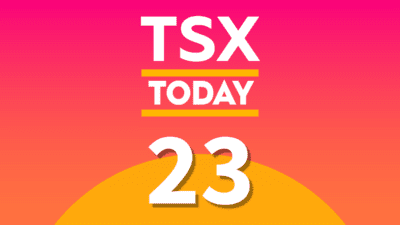Over the last decade, Canadian housing has been a terrific asset. It seemingly doesn’t matter which city it is, prices have shot upwards.
According to the Canadian Real Estate Association, the average Canadian house rose more than 70% in value since 2005. Certain markets, like Vancouver and Montreal, actually lagged the average, while markets like Calgary, Saskatoon, and Regina easily exceeded it. Toronto, Canada’s largest market, grew at about the same pace as the country as a whole.
Many Canadians are extremely bullish on housing. For many, especially those burned by stocks during the Great Recession of 2008-09, housing has been their best performing asset. Even now, as the chorus of market observers saying Canada is in a housing bubble grows even louder, real estate still continues to perform, easily outpacing inflation on a year over year basis.
But, alas, things aren’t as good as they seem. Many of Canada’s cities have real estate markets that belie the national number.
Markets east of Ottawa are showing weakness, while Toronto and Calgary’s red hot results largely make up for it. Even former high flying markets such as Saskatoon, Kelowna, and Victoria have recently started showing year over year declines. But since Toronto and Calgary are Canada’s first and fourth largest markets, they mask the weakness happening across smaller markets.
At some point, it will all end badly. We saw it happen in the United States, and it will happen in Canada. One day, a multitude of factors will cause values to start declining across the country, and then consumers will start to lose confidence in real estate. Perhaps the result won’t be as bad as the United States’s crash, but it won’t be good.
After such a large run-up in values, holding real estate in most of Canada’s largest cities isn’t a good idea. But not only that, it wasn’t even a good idea even during the greatest real estate bull market in history.
As an example, let’s say an investor paid $100,000 for the average Canadian house exactly a decade ago. For the sake of simplicity, let’s ignore all the associated costs with owning — things like property taxes, maintenance, and so on — and just look at a simple return. After the last decade, this investor’s house would be worth $170,000, give or take.
If the same investor would have invested $100,000 in RioCan (TSX: REI.UN), Canada’s largest REIT, at the exact same time, their shares would be worth approximately $181,000. Already, investing in RioCan has turned out to be a better investment than simply buying a house.
But what if the investor reinvested their dividends into more RioCan shares? Then the initial $100,000 would have grown into more than $235,000, which works out to an almost 13% compounded return. Over the last decade, buying shares of RioCan trounced buying a house.
Investors who bought shares in Canadian Apartments REIT (TSX: CAR.UN) would have enjoyed even better results. Shares increased more than 88% over the decade, and were up almost 14% per year if dividends were reinvested. That’s almost double the return of buying a house, without any of the headaches involved.
Even buying H&R REIT (TSX: HR.UN), which was the lagger of the entire REIT sector, wouldn’t have ended up being such a bad move. Shares increased 49% during the last decade, but the total return was 10.8% annually once dividends were reinvested.
Boardwalk REIT (TSX: BEI.UN) would have been the big winner though. If investors bought $100,000 of Boardwalk’s shares back in 2004, and reinvested all dividends, the investment would be worth more than $600,000 today.
REIT investors have been able to outperform homeowners by such a huge margin because REITs generate income, and homes do not. It’s that simple. I understand that people need to live somewhere, and property ownership is a dream for many. Owning your own home has all sorts of intangible benefits. But even after the greatest bull market in Canadian history, the fact remains that it’s not a very good investment.







